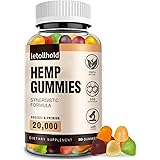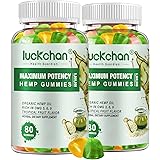Are you grappling with high cholesterol levels, yet feel frustrated by conventional dietary advice? The video above challenges common perceptions. It suggests an unexpected pathway to normalized cholesterol. Furthermore, this approach shows promise for other serious health concerns. Let’s explore this metabolic paradigm shift. It offers powerful insights beyond traditional thinking.
Rethinking Cholesterol: Beyond the Fat Fallacy
For decades, we heard one message. Saturated fat was the enemy. Butter, cream, cheese, and eggs were villains. This narrative linked these foods directly to high cholesterol. Yet, for many, strict adherence brings little change. Cholesterol levels remain stubbornly elevated. This often leads to medication. But what if the conventional wisdom misses a critical element? What if dietary fats are not the primary culprits?
This perspective shifts focus. It moves from dietary fat to metabolic function. Our bodies are complex machines. Cholesterol is vital. It builds cells. It makes hormones. The issue often lies elsewhere. It resides in how our bodies process energy. High cholesterol, specifically oxidized LDL, signals deeper metabolic dysregulation. It is often a symptom, not the root cause.
The Glucose-Insulin Axis: A Core Regulator
The conversation often overlooks glucose. Specifically, it ignores its impact on insulin. When we consume excess carbohydrates, glucose surges. Insulin then rises. Chronic high insulin drives lipogenesis. This is fat production. It can also alter lipoprotein profiles. These changes contribute to an atherogenic environment. This means higher triglycerides. It also means smaller, denser LDL particles. These are more damaging. Understanding this connection is crucial. It changes how we view cholesterol management.
Dr. Atkins’s Unexpected Discoveries
The video briefly mentions Dr. Atkins. He was a pioneer. His work focused on carbohydrate restriction. He observed striking clinical outcomes. His patients consumed substantial dietary fats. Yet their cholesterol levels often improved. This confounded prevailing dogma. It was an anomaly. Atkins found similar surprising benefits. His cancer patients showed remission. These were not the intended outcomes of his diet. They were profound, serendipitous discoveries.
Atkins scratched his head. His observations challenged the status quo. They pointed to a different mechanism. This mechanism involved glucose metabolism. It revealed the body’s adaptive capabilities. When deprived of abundant glucose, the body shifts fuel sources. It enters a state of ketosis. This metabolic state has wide-ranging effects. It influences both lipid metabolism and cellular health. These findings were decades ahead of their time. They laid groundwork for future research.
The Warburg Effect: Cancer’s Glucose Addiction
The video highlights a critical biological fact. Cancer cells are metabolic outliers. They consume glucose at an astounding rate. They crave it. Specifically, cancer cells consume 15 times the glucose of any other cell. This phenomenon is known as the Warburg Effect. Otto Warburg discovered it in the 1920s. Cancer cells prioritize glycolysis. This is glucose fermentation. It happens even with oxygen present. This is inefficient. Yet it supports rapid proliferation. They are like a factory with a faulty energy system. They burn through raw materials at an insane rate.
Starving the Beast: Glucose Restriction and Cancer
Imagine a besieged city. It relies on a single supply line. Cut that line, and the city weakens. Cancer cells operate similarly. They are highly dependent on glucose. When glucose is drastically restricted, cancer cells suffer. They lack the necessary fuel. Their growth slows. They struggle to divide. In some cases, they can self-destruct. This process is called apoptosis. This metabolic vulnerability offers a therapeutic avenue. It is a powerful concept. It provides hope for new cancer strategies.
This approach moves beyond genetics. It focuses on metabolism. Cancer is increasingly seen as a metabolic disease. Targeting its fuel source is logical. It shifts from purely genetic mutations. It embraces a holistic cellular environment. This understanding transforms treatment paradigms. It opens doors for nutritional interventions.
Glucose Restriction: A Unified Strategy for Metabolic Health
The elegance of glucose restriction lies in its dual impact. It benefits both high cholesterol and cancer. This isn’t coincidence. It points to a common underlying mechanism. Both conditions often stem from metabolic dysfunction. Excess glucose and chronic hyperinsulinemia drive these pathologies.
For cholesterol, reduced glucose means lower insulin. This reduces VLDL production. It helps normalize lipoprotein profiles. LDL particles become larger and fluffier. These are less atherogenic. HDL levels often improve. Triglycerides plummet. This reflects better metabolic health. It moves beyond simple “good” vs. “bad” cholesterol labels.
For cancer, the benefits are direct. Depriving cancer cells of their preferred fuel is critical. It impairs their growth. It reduces their energy. It enhances the effectiveness of other treatments. It may even induce apoptosis. This strategy harnesses the body’s own metabolic pathways. It creates an inhospitable environment for disease.
Implementing Glucose Restriction: Key Principles
Adopting a glucose-restricted diet requires careful planning. It means drastically reducing sugary foods. It also means cutting refined carbohydrates. This includes bread, pasta, and cereals. Focus shifts to whole, unprocessed foods. Prioritize healthy fats. Include quality proteins. Emphasize non-starchy vegetables. These choices promote metabolic flexibility. They train the body to burn fat for fuel. This transition needs guidance. Consulting a knowledgeable healthcare professional is wise. They can tailor a plan to individual needs. This ensures safety and efficacy.
Understanding metabolic pathways is powerful. It allows us to rethink chronic diseases. We can move beyond symptom management. We can address root causes. The evidence is mounting. Glucose plays a central role. It impacts our high cholesterol. It influences cancer progression. A metabolic approach offers transformative potential. It empowers individuals to take control of their health destiny.











